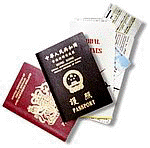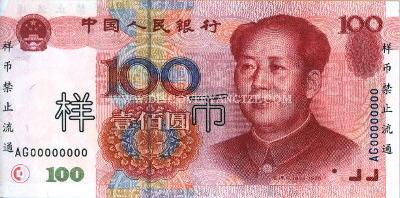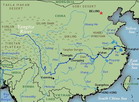2020 Yangtze River Cruise and Ferry Starting from 79 USD p.p.!
Facts for the Traveler
Climate
The three large cities along the Yangtze River Chongqing,
Wuhan and Nanjing are Known traditionally as the 'three furnaces
of China'. Between April and September, The temperature in the
Yangtze River valley reaches 36'C (97'F) and above. Spring and
autumn are therefore the best seasons for making the river cruises.
However, With the tall mountains and gorges through which the
river threads its path, Precipitation is very high and the peaks
are often shrouded in cloud and mist, Although a light haze
can enhance the beauty of the scenery. Summer rains are Torrential;
you may find thunderstorms dramatic if you are on board your
boat but a nuisance should you be trying to sightsee ashore.
The winters are short, cold and crisp. Late-summer travels will
coincide with the high-water periods, when the river Rises swiftly,
almost perceptibly.
CHONGQING
AVERAGE TEMPERATURES
Jan Feb Mar
Apr May Jun Jul
Aug Sep Oct Nov Dec
'C 7 10 14.5
19.5 23 25.5 29 30
25 19 14 10.5
'F 44.6 50 58.1 67.1 73.4
77.9 84.2 86 77 66.2
57.2 50.9
AVERAGE RAINFALL
Jan Feb Mar
Apr May Jun Jul Aug Sep Oct
Nov Dec
mm. 15 20 38 99 142
180 142 122 150 112 48 20
in. 0.6 0.8 1.5 3.9
5.6 7.1 5.6 4.8 5.9 4.4
1.9 0.8
WUHAN
AVERAGE TEMPERATURES
Jan Feb Mar
Apr May Jun Jul Aug
Sep Oct Nov Dec
'C 2.7 5.2 10 16.2
21.1 26.1 29.1 28.4 23.9 17.6 11.4 5.5
'F 36.8 41.3 50 61.1 69.9
79.8 84.3 83.1 75 63.6 52.5
41.9
AVERAGE Rainfall
Jan
Feb Mar Apr May Jun Jul Aug Sep Oct Nov Dec
mm. 152 152 203 279 305 381 254 203 178 178 152
127
in. 6 6
8 11 12 15 10
8 7 7
6 5
Clothing
Light summer clothing is all that is required between
April and September, with a Woolen cardigan or warm jacket for
the cool evenings on board. To combat the summer mugginess,
travellers should wear cotton rather than synthetic fibres.
Those who rise at dawn to watch the passage through the gorges
may imitate the Chinese Passengers who huddle in blankets supplied
by the ship.
The Yangtze River towns are very informal indeed;
wear comfortable everyday Clothes when you visit them. Steep
steps from the jetties to the towns require walking Shoes, and
since the streets turn to mud within minutes of a heavy rainfal1,
you may need an extra pair. Umbrellas can be bought cheaply
almost anywhere. On board the More deluxe ships, however, many
like to dress a little more formally for the last Night of the
cruise; therefore women may want to bring a smart outfit and
men a Jacket and tie.
Warm clothes are essential for the river journeys
during seasons other than summer. The boats can be draughty
and the wind piercing. However, c1othing is one of the best
bargains in China, with excellent down or quilt jackets available
in many of the big towns and cities. Bring a pair of light hiking
boots as the terrain can be hilly, Rocky and muddy.
Visas
Everyone must get a visa to go to China, but this
is usually a trouble-free process. Tourists  traveling
in a group are listed on a single group visa issued in advance
to the travel agent involved. Their passports will not be individually
stamped with the Visa or on arrival and departure unless specifically
requested.
traveling
in a group are listed on a single group visa issued in advance
to the travel agent involved. Their passports will not be individually
stamped with the Visa or on arrival and departure unless specifically
requested.
Tourist visas for individual travelers can be obtained
at Chinese embassies and Consulates as well as from certain
travel agents in your respective countries, from The Chinese
Ministry of Foreign Affairs visa office in Hong Kong or through
several Hong Kong travel agents including branches of CTS. The
application procedure is quite routine; you simply fill in a
form, supply one photograph and hand in a fee with your passport.
Visa fees vary considerably depending on the source
of the visa and on the time taken to get it. In Hong Kong, for
instance, you can get a single-entry or double--entry, Three-month
tourist visa within one working day if the application is handed
in Before 9 am. Multi-entry business visas are also available.
Money
Chinese CURRENCY
Chinese currency is called Renminbi (meaning 'people's
currency') and this is abbreviated to Rmb. It is denominated
in yuan, referred to as kuai in even day speech. The yuan is
divided into l0 jiao  (colloquially
called Mao). Each jiao is divided into l0 fen. There are large
notes for l00, 50, 5, 2 and 1 yuan, small notes for 5, 2, and
1 jiao, and coins and notes for 5, 2, 1 fen and 1 yuan.
(colloquially
called Mao). Each jiao is divided into l0 fen. There are large
notes for l00, 50, 5, 2 and 1 yuan, small notes for 5, 2, and
1 jiao, and coins and notes for 5, 2, 1 fen and 1 yuan.
FOREIGN CURRENCY, Traveler’s CHEQUES AND CREDIT CARDS
.
There is no limit to the amount of foreign currency
you can take into China. Traveler’s cheques are changed
at a slighter better rate than cash. All major European, American
and Japanese traveler’s cheques are accepted by the Bank
of China. International credit cards may be used to draw cash
at larger branches and for payment in international hotels.
In Most other cases only cards issued in China are acceptable.
TIPPING
The accepted standard for tipping in the West is
rapidly becoming the norm in modern China. While it is not normally
practiced in local establishments, tipping would certainly be
expected by local guides, drivers and waiter in places frequented
by foreigners.
BARGAINING
With the exception of stores with marked prices,
always bargain in markets and shops. Even state-run stores will
often give discounts on expensive items like carpets intended
for tourists. Bargaining in China can be good-humored or it
can be infuriating; it is game won by technique and strategy,
not by anger or threats. Thus, it should be leisurely and friendly,
and not be seen as a one way process at all, since the Chinese
enjoy it. Finally, it is bad manner to continue to bargain after
a deal has been struck.
Communications
China’s post-office system is rather reliable.
Every post office counter has a pot of glue, as low-denomination
stamps do not have glue on the back.
International Direct Dialing is available everywhere, and even
by satellite phone from the more luxurious cruise ships (although
at huge expensive). Long-distance calls within China are often
cheaper than local ones, and even fairly modes hotels have business
center with fax and internet connections and you can find a
lot of internet cafe in every china town.
Local time
Amazingly for a country measuring 3220 kilometers
(over 2000 miles) from east to west, most of China operates
from time Zone 8 Hours ahead of GMT and 13 hours ahead of EST.
From Urumqi to Kashgar, local people work to a “local
time” which is two hours behind Beijing. This time difference
is “unofficial” but determines transport timetable
and other service in the region.
Packing Checklist
As well as bringing along any prescription medicines
you may need, it is a good idea to pack a supply of common cold
and stomach trouble remedies. While it is not necessary to pack
toilet paper these days, it is advisable to take some with you
when going out sightseeing, as public toilets do not provide
it. Bring plenty of film and camera accessories, such as batteries
and flashes. Although film is widely available, the right type
may not always be obtainable at the right time. Comfortable,
non-slip shoes are must.
Health
There are no mandatory vaccination requirements,
although there is a nominal health form to fill out on arrival.
Make sure your basic immunizations are up to date: polio, diphtheria
and tetanus. To check on the latest recommendations contact
your nearest specialist travel clinic or tropical medicine hospital-
family doctors are sometimes not entirely up to date. The need
for the following vaccinations may vary according to time of
year and part of China to be visited: meningococcal meningitis,
cholera, hepatitis A and B, and Japanese B encephalitis. Malarial
protection must be begun one week before entering the affected
area and these inoculations together, and some require multiple
shots spread over a three-month period or more. They can also
be very expensive.



